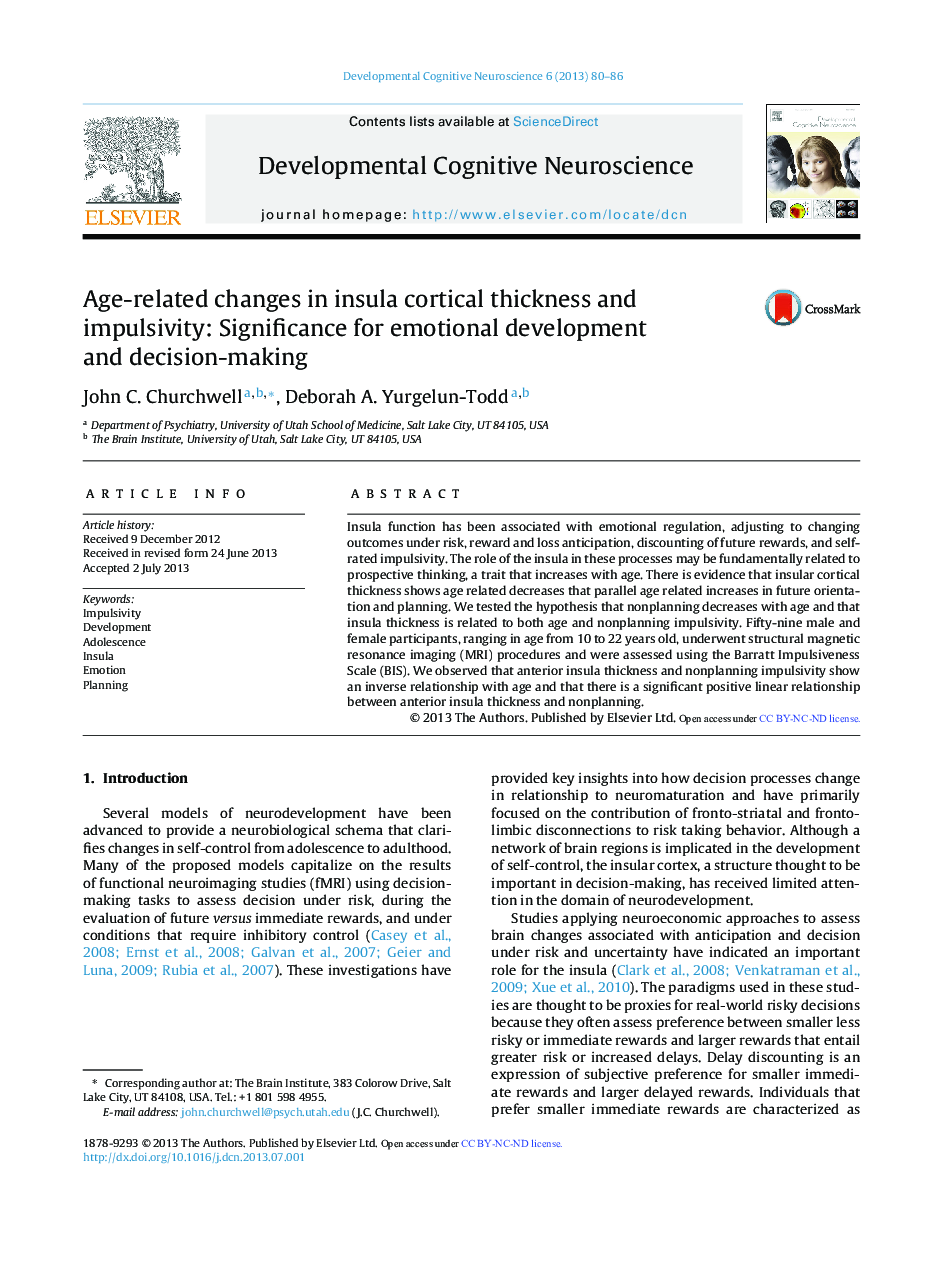| Article ID | Journal | Published Year | Pages | File Type |
|---|---|---|---|---|
| 6260928 | Developmental Cognitive Neuroscience | 2013 | 7 Pages |
â¢Compartments of insular cortex show age-related decreases.â¢Age-related increases in future orientation and planning also occur.â¢Participants aged 10-22 years were assessed for impulsivity and with MRI.â¢We report an inverse relationship for age and nonplanning/anterior insula thickness.â¢We also observed a positive relationship between insula thickness and nonplanning.
Insula function has been associated with emotional regulation, adjusting to changing outcomes under risk, reward and loss anticipation, discounting of future rewards, and self-rated impulsivity. The role of the insula in these processes may be fundamentally related to prospective thinking, a trait that increases with age. There is evidence that insular cortical thickness shows age related decreases that parallel age related increases in future orientation and planning. We tested the hypothesis that nonplanning decreases with age and that insula thickness is related to both age and nonplanning impulsivity. Fifty-nine male and female participants, ranging in age from 10 to 22 years old, underwent structural magnetic resonance imaging (MRI) procedures and were assessed using the Barratt Impulsiveness Scale (BIS). We observed that anterior insula thickness and nonplanning impulsivity show an inverse relationship with age and that there is a significant positive linear relationship between anterior insula thickness and nonplanning.
